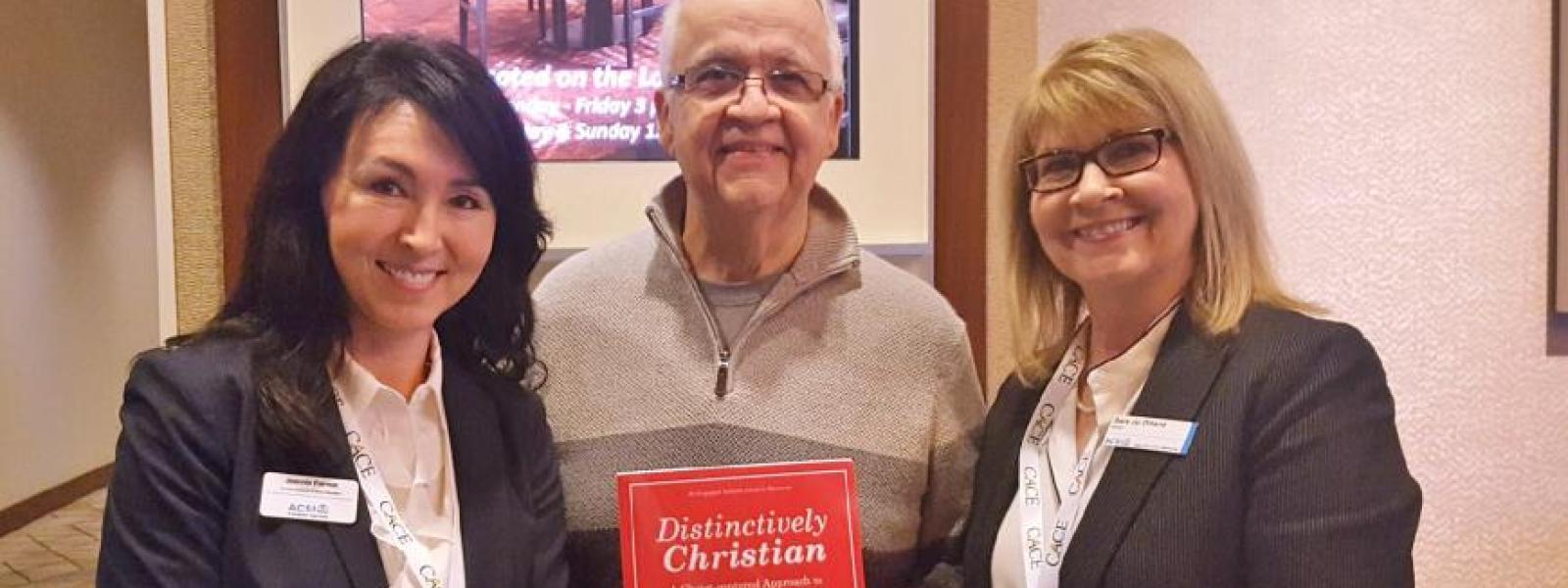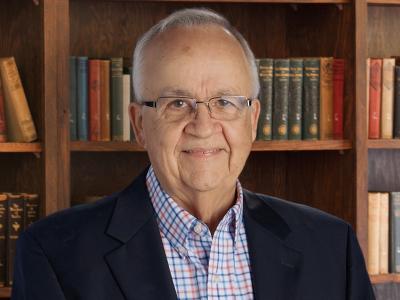Making Early Childhood Education Distinctively Christian


Dr. Milt Uecker
New book by CIU professor fills Christian education void
A Columbia International University professor of education shares his life’s passion and calling in a new book.
“Distinctively Christian” by Professor Emeritus Dr. Milt Uecker focuses on Early Childhood spiritual development in children ages two to eight, and will primarily be used by Christian school teachers and program directors. He is especially hopeful that program directors will use the book as a training tool for their staff and more particularly as required reading for newly hired personnel. Uecker, who also directs the Lowrie Center for Christian School Education at CIU, discusses his book in this Q&A:
What prompted you to write this book?
This is really about my life's passion and calling. I refer to young children as my people group. I earned my doctorate for the specific purpose of addressing developmentally appropriate practices within Christian schools. In keeping with that, I have had the opportunity to speak at early education conferences for almost 40 years. At these conferences, I am frequently asked whether I have written a book or when I plan to write a book. CIU alumna Sara Jo Dillard (Class of 2003), director for early childhood resources for the Association of Christian Schools International (ACSI), has been looking forward to the books because there are few publications for use within Christian schools and this has hindered the development of "truly" Christian early education programs. Too often Christian simply means that the program is within a church facility and there may be a devotion and chapel once a week.
You make a case for education being distinctively Christian and thoroughly academic. Is there a danger of losing balance between the two? / If so, how do you keep the balance?
The name of the book is Distinctively Christian in that ALL preschools are academic. They all focus on school readiness and hopefully the social development of the child. But the distinctive of Christ-centered early education is that its philosophy centers on the whole child and that includes the faith or spiritual development of the children. Once that is understood then there needs to be attention given to understanding faith development and the means to facilitate this development. We also speak of educating from a biblical worldview and because of lack of training most early educators are hard-pressed to define a biblical worldview. Yes, there is a danger of becoming merely academic. We maintain balance when we develop early education programs that have a mission and vision to reach the whole child. This vision includes clearly defined spiritual or faith outcomes and a curriculum that addresses the means to these outcomes. This is why the book starts with defining what a Christian early education program's mission and outcomes should be and ends with a chapter on how to assess these ends to see if the program is accomplishing its mission. The chapters in between are the “how to” chapters.
Is there a danger of Christian schools looking more like a private school with some Bible sprinkled in?
The answer is a definite yes. We have experienced a dramatic shift in emphasis brought on by an often inappropriate and over emphasis on the academic aspect of the school (good grades, accelerated learning, AP courses, high-test schools, admission to elite colleges, etc.). Christian schools must be thoroughly academic BUT not at the cost of graduating genuine committed followers of Jesus who live their lives for God's glory and his Kingdom.
How do you make education “distinctively Christian” for the pre-school or kindergarten-age children?
You understand the process of faith development in young children and in keeping with how the child learns, immerse them in Christian community with models (the living curriculum) that make abstractions concrete. Scripture tells us "be imitators like dear children." Children learn through experience. If they are to have a biblical worldview then they must experience classrooms centered on God's presence, understand that God has given us a Book that is the foundation for Truth, be taught that values and a moral code are not subjective but revealed in God's Word and realize they are made in the image of God with special gifts and purpose. They must understand that they are also sinners in need of redemption, etc. My book includes chapters on communicating each area of worldview, the teacher as living curriculum, and the teaching of ONE redemptive story and the inclusion of the gospel within the context of that one story.
What kind of feedback have you received from the book so far?
At the recent Global Christian School Leadership Conference, the packed room overflowed into the hall as I shared a session on spiritual formation during early childhood. ACSI has asked me to speak and promote the book during their 2020 early education conferences and to overview the topic during a nationwide webinar.
Editor’s Note: The book is published by Wheaton Press. Dr. Milt Uecker will also serve as editor of two more Wheaton Press books on the Christian philosophy of education:
“Distinctively Christian: Christ-centered Early Childhood Philosophy and Practices” and “Distinctively Christian: A Christ-centered Approach to Early Childhood Teaching and Learning.”
Columbia International University ranks #1 among colleges and universities in South Carolina by BestColleges.com. Excitement is growing on campus with the new $20 million William H. Jones Global Business & IT Center and CIU’s first baseball program. Request information on enrollment at CIU and Columbia Biblical Seminary or call (800) 777-2227, ext. 5024.
